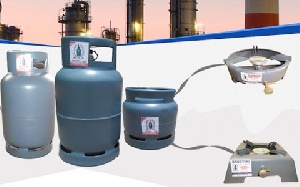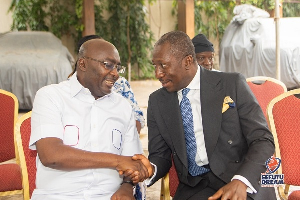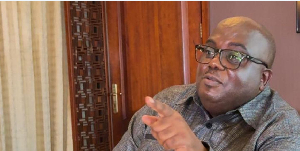Liquid Petroleum Gas (LPG) is an excellent fuel for cooking and for automotive use LPG cylinders are safe if used correctly. However, if stored or used incorrectly, LPG can be extremely dangerous. When safety is compromised accident is born which can cause serious injury or even death. . A single mistake in the kitchen can be fatal, so be careful! You can be roasted alive.
Kitchen Safety Measures.
Users of LPG should be aware of the hazards and risks associated with its storage and use. LPG cylinders are not harmful. It is the people who are careless that make them harmful. Most fire accidents happen because of negligence. People fail to notice leaks, do not change the hose periodically, do not turn off the valve etc. Yes, sometimes faulty cylinders are delivered, which is why we need to be alert and be caretakers of our own safety. This guidance provides simple practical advice on eliminating or reducing the risks associated with using LPG
Proper storage of the cylinder in your home is paramount. Whether it concerns the cylinder connected or stored, there are some actors to be taken in consideration. Gas bottles should preferably be located outdoors. The idea to have the gas cylinder outside the kitchen and connected by long hose to the stove or burner is a very good idea.
•In majority of accidents, the LPG cylinder doesn’t explode, rather by gas leaking from any of the joints of the LPG stove, cylinder and its accessories.
•Forgetting to switch off the regulator when not in use.
•Damaged O-Ring in the cylinder valve.
•Leak of LPG from damaged rubber tube.
•Incorrect fixing of the regulator.
LPG leak is not visible in its initial phase since it is colorless. If the leak increases in sufficient volume it can be seen shimmering in the air. If we keep the cylinder outside, even if LPG leaks or the safety valve releases gas, the dangerous LPG would disperse in open air. The use and storage of gas bottles of LPG indoors, whether full or nominally empty, should be avoided whenever possible.
Never keep two full cylinders together.
The best practice safety advice is that you should never store LPG indoors but if this is not reasonably practicable, due for example to architectural structure, ample precaution must be taken before and after use of the gas stove. The cylinder should be placed in a well ventilated location and not exposed to other heat sources. It should not be placed near an electrical socket or flammable substance. Keep the kitchen windows open throughout the day and night. Cross ventilation will disperse gas quickly as LPG is a heavy gas and when it leaks it will come down and remain static.
Use a cylinder regulator that is equipped with a Major Leakage Auto Shut Off Facility which will automatically shut-off the gas supply from the cylinder due to major leakages of gas caused by:
•The rupturing of a tube or pulling off the stove or regulator
•The regulator fails to function properly
•The tube catching fire
Like electricity, cooking gas or Liquefied Petroleum Gas (LPG) should be considered a dangerous utility that needs to be treated with maximum caution. Unlike electricity where as a standard, safety trip switch devices are fitted, most LPG cylinder regulators are not equipped with an emergency auto shut off facility.
The elderly and impaired with a reduced sense of smell may not detect the odorant in gas, while others may have difficulty using gas appliance controls and safety features. These people and their cares should consider the use of appropriate additional safety devices.
Children should always be kept away from the cooking area and most importantly the LPG cylinders.
Further, the cylinder should be placed vertically on a firm and level surface, where good access to cylinder, valve and regulator is ensured.
When cooking with LPG
•Keep the windows open to ventilate your kitchen
•Position the stove or burner above the level of cylinder
•Do not place flammable or plastic items near the flame
•Never leave your cooking unattended. The cooking vessel could overflow and extinguish the burners, causing gas to leak.
•Close the regulator knob to OFF position when cylinder is not in use
When keeping the cylinder outside, place it in a cabinet which has wire mesh provided at the bottom to allow LP gas to escape into the air in case of a leak.
Store gas cylinders in a dry, safe place on a flat surface in the open air or in an adequately ventilated building or part of a building specifically reserved for this purpose.
Ensure the valve is kept shut on empty cylinders to prevent contaminants getting in, and that all parts including the rubber O-ring conform to Standards. Never place weights (bricks) on the regulator to keep it fitted on the cylinder while in use. Your gas cylinder is required to be re-tested and stamped every 10 years.
In their natural state, LPG (Propane and Butane) and Natural Gas (Methane) are all odorless gases. The distinctive smell that people associate with these gases is actually added to them as a safety measure.
When you suspect a leak or can smell gas, there might be a leak in the LPG equipment; this is dangerous as it can lead to fire or explosion. Windows and doors should be opened for the dispersion of the leaks. Check if any burners on your stove are accidently turned on. Further, it is important not to operate any electrical appliances either by switching the button on or off. If the cylinder is safe to approach, the regulator or valve should be closed.
While the gas leak is suspected, all electronic gadgets and equipments, including all lights and fans should be kept switched off. Also, all the matches and lighters should be kept away from the cooking area or from the place where the leaking cylinder is kept.
If in your assessment, a major fire is likely, call the Fire Service immediately.
It is important to know that when your gas cylinder is close to empty, the gas at the bottom may smell stronger (even if it isn't leaking).
One of the most common mistakes is that people use a lighter to inspect a leak. If there is indeed a leak and it is big enough, this can result in a fire. It is important not to use a match or lighter to detect the leak, because this may induce a fire. Instead, use a soap water solution.
When using this solution, a leak area can easily be detected by the appearance of a bubbly substance, whereas a good connection will see the soap leak away in fluid form.
If the leak persists, remove the cylinder to a safe and open/ventilated place.
Do not connect or disconnect cylinders in the vicinity of a naked flame.
Easy to neglect is also the recommendation to turn of the regulator or valve when leaving the house. However, this is an important safety measure to avoid unexpected accidents.
Do not neglect issues like leaking gas cylinders or tubes, damaged regulators, incorrect method of storage of LPG cylinders, etc.
Always check the rubber tubes associated with your LPG cylinders. Always use rubber LPG tubes having the ISI mark. They should not be damaged or found to be
leaking. Change these parts on a periodical basis.
Finally the GasSafe Safety Regulator is highly recommended as it is a custom built device which can arrest Gas leakage and prevent fire accidents. Its basic features and USP are
•Prevents fire accidents caused by major leak of LPG through its Auto cut off mechanism.
•Ascertains minor Gas leakage
•Saves up to 30% of LPG>>> Reduction in household monthly expenditure and financial freedom to the family.
•Dual role of the unique Manometer : Gas level in the cylinder & Child safety knob.
•Reduced vapor pressure through GasSafe device prevents minor gas leakage migrating to major gas leakage, a common cause in most of the gas accidents reported.
Always remember that prevention is better than cure. LPG accidents do not visit us with prior intimation; neither does it distinguish an individual based on his or her societal status. Let us introspect and move forward and do not neglect any of the safety norms. In my opinion you can't put a price on peace of mind.
Be Safe with GasSafe.
Aarnabert Ventures,
(Distributor of Gassafe Regulator)
Email: aarnabert@yahoo.com
Opinions of Thursday, 24 August 2017
Columnist: Aarnabert Ventures
Domestic LPG safety, it is in your hands
Opinions














